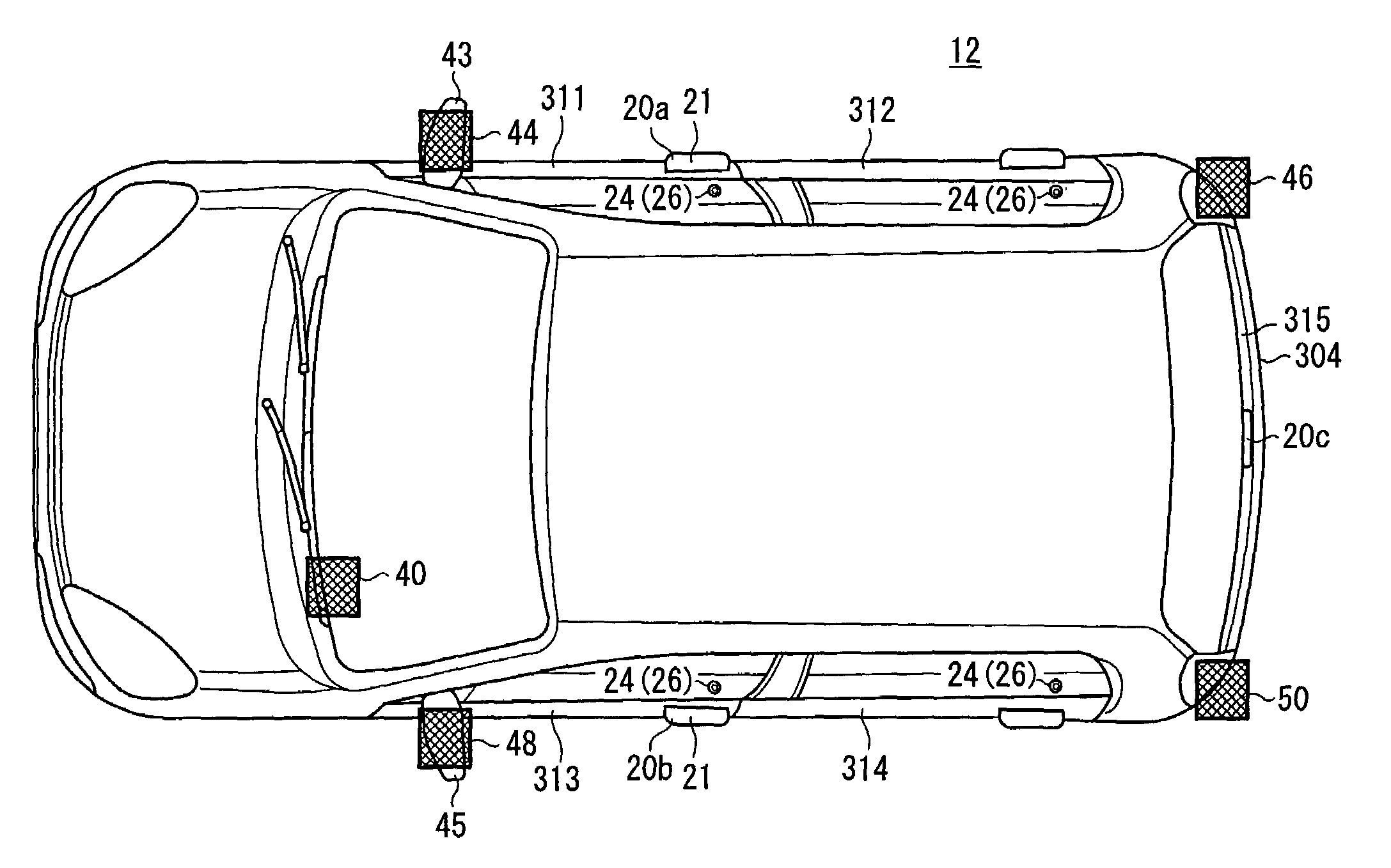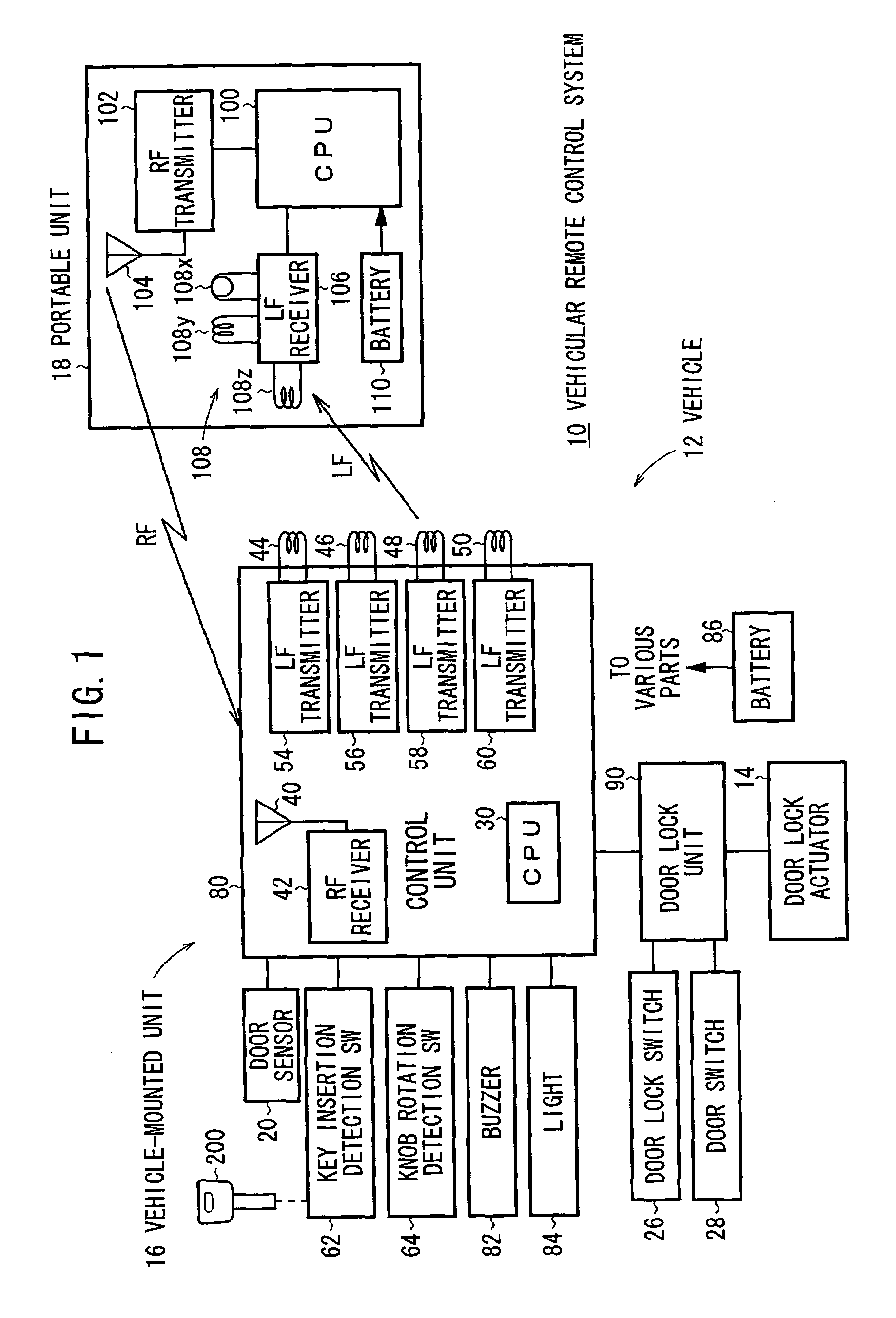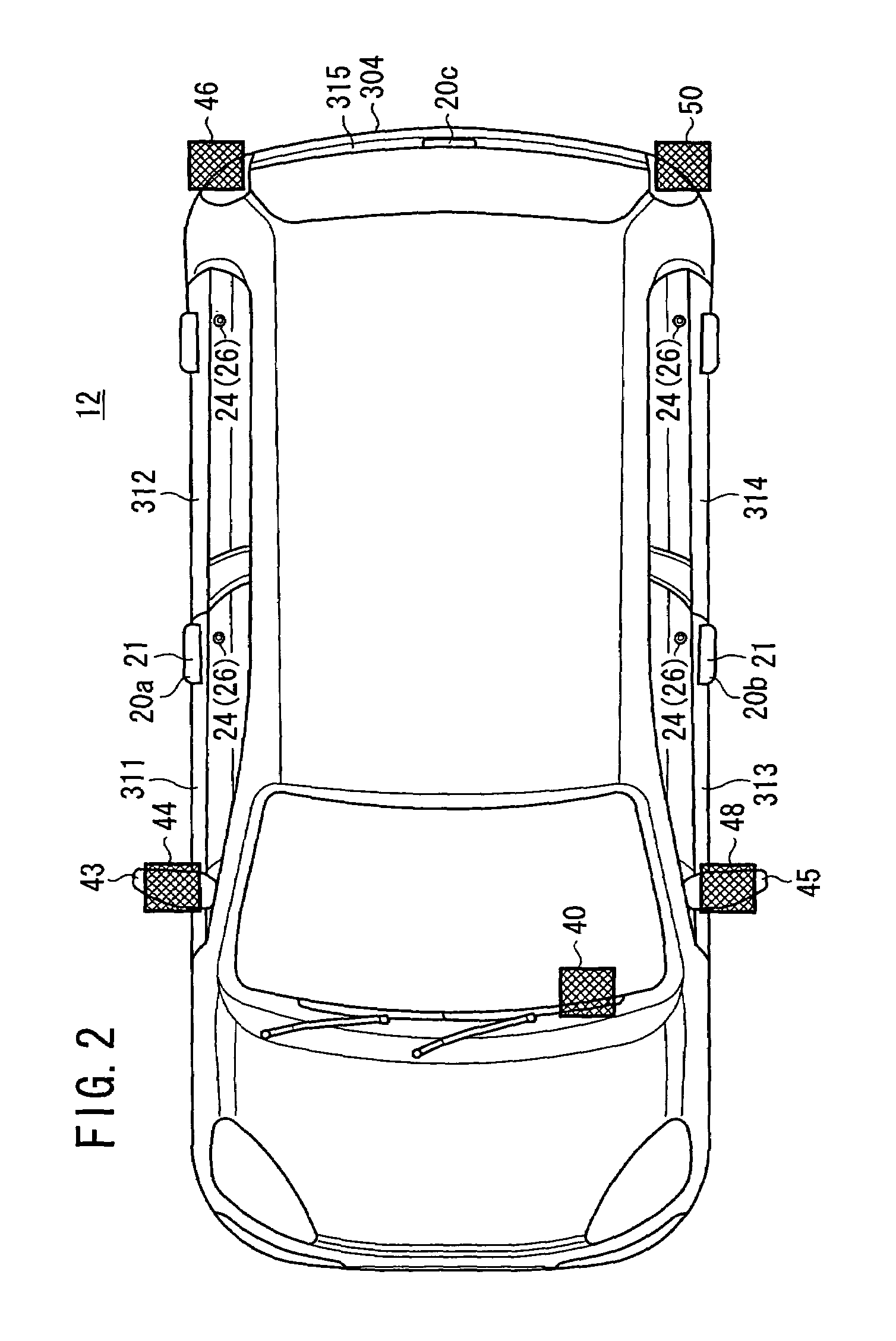Remote door lock controller for vehicles
a remote door lock and controller technology, applied in the field of vehicle remote door lock controllers, can solve the problems of increasing the number of antennas used on the vehicle rather than reducing the number of, and the number of antennas is large, so as to reduce the number of antennas installed and efficiently detect the portable unit
- Summary
- Abstract
- Description
- Claims
- Application Information
AI Technical Summary
Benefits of technology
Problems solved by technology
Method used
Image
Examples
1st embodiment
[0085]The individual transmission control process for request signals will be described below with reference to the flowchart shown in FIG. 8 and the request signal individual transmission control table 322 shown in FIG. 9B.
[0086]In step S1, the CPU 30 confirms whether there is an input signal from either one of the door sensors 20a, 20b, 20c or not.
[0087]If it is detected that the door sensor 20a on the outer door handle 21 near the driver seat is activated, i.e., if the owner of the portable unit 18 touches the door handle 21 and an on-signal is supplied from the door sensor 20a, then the CPU 30 refers to the request signal individual transmission control table 322 shown in FIG. 9B, and energizes the LF transmitter 54 to transmit an LF request signal from the LF antenna 44 mounted on the door mirror 43 near the driver seat, in step S2. At this time, the radio wave of the request signal is transmitted only in the effective transmission range TA1 (see FIG. 7) of the LF antenna 44 fo...
2nd embodiment
[0099]The simultaneous transmission control process for request signals will be described below with reference to the flowchart shown in FIG. 10 and the request signal simultaneous transmission control table 324 shown in FIG. 9C.
[0100]In step S11, the CPU 30 confirms whether there is an input signal from either one of the door sensors 20a, 20b, 20c or not.
[0101]If it is detected that the door sensor 20a on the outer door handle 21 near the driver seat is activated, then the CPU 30 refers to the request signal simultaneous transmission control table 324 shown in FIG. 9C, and simultaneously energizes the LF transmitters 54, 56 to transmit an LF request signal from the LF antenna 44 mounted on the door mirror 43 near the driver seat and an LF request signal from the LF antenna 46 mounted on the corner of the rear bumper 304 near the driver seat in step S12.
[0102]When the request signals are simultaneously transmitted, their radio waves overlap each other, and the combined radio wave pr...
3rd embodiment
[0120]An intermittent simultaneous transmission control process for intermittently simultaneously transmitting request signals from two LF antennas (44 and 46, 46 and 50, or 48 and 50) including either one of the LF antennas 46, 50 mounted on the corners of the rear bumper 304 will be described below with reference to a flowchart shown in FIG. 12.
[0121]In step S21, the CPU 30 determines whether a condition for intermittently simultaneously transmitting request signals is satisfied or not. Specifically, the condition is satisfied when the CPU 30 confirms that all the door switches 28 are turned off and hence all the doors 311 through 315 are closed. If the condition is satisfied, then the CPU 30 starts an intermittent simultaneous transmission control process for intermittently simultaneously transmitting request signals.
[0122]In step S22, LF request signals are simultaneously transmitted from the LF antenna 44 near the driver seat and the LF antenna 46 on the corner of the rear bump...
PUM
 Login to View More
Login to View More Abstract
Description
Claims
Application Information
 Login to View More
Login to View More - R&D
- Intellectual Property
- Life Sciences
- Materials
- Tech Scout
- Unparalleled Data Quality
- Higher Quality Content
- 60% Fewer Hallucinations
Browse by: Latest US Patents, China's latest patents, Technical Efficacy Thesaurus, Application Domain, Technology Topic, Popular Technical Reports.
© 2025 PatSnap. All rights reserved.Legal|Privacy policy|Modern Slavery Act Transparency Statement|Sitemap|About US| Contact US: help@patsnap.com



